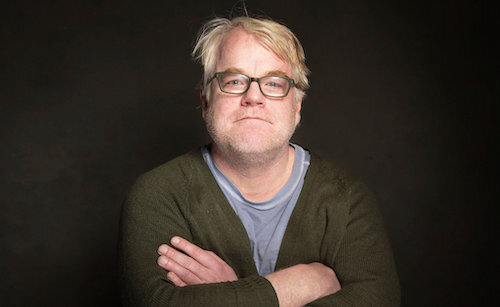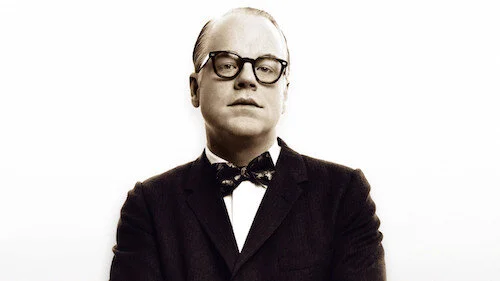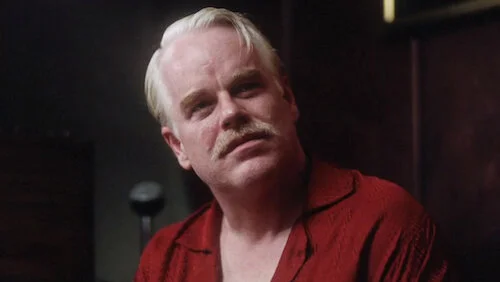Remembering Philip Seymour Hoffman
Yesterday, July 23rd, 2020, would have been Philip Seymour Hoffman’s fifty third birthday. This year instead marks the sixth year of his passing, when he died prematurely February 2nd, 2014. From that very second, the film world had changed in an instant. Sure, great performers are always present at any point in the industry. However, Philip Seymour Hoffman was just different. He somehow was split in half between the old and new generations. As a stage presence, Hoffman knew all about nuance and playing small moments largely (as in emphasizing his minimalism, rather than under or over act). Then, there was his slight chameleon-esque transformations; never full-on method or unrecognizable, but different enough to embody a new character every single time. With both mindsets together, Hoffman was singular. He was a bit more classical than other transformative performers, but he was a bit more out there than reserved actors. He was himself, and it was enough to impact three different decades.
For much of the ‘90s, Hoffman was a character actor reserved for small bit parts or supporting roles. He insisted on his A-game every time, even as a boneheaded storm chaser in Twister or a student caught in the middle of a debacle in Scent of a Woman. It was the indie and auteur scene that pushed Hoffman to the forefront. In Paul Thomas Anderson’s early works (especially Boogie Nights and Magnolia), no character was any less important than the other, and it showcased Hoffman in a deceptively considerably commanding role (particularly Magnolia, where he could be considered one of the leads). Todd Solondz’ Happiness was a tightrope walk of a bleak black comedy that granted Hoffman the ability to juggle comedy with disturbing topics. The Coen brothers saw fit to make Hoffman a walking gag in The Big Lebowski, and Anthony Minghella felt he could be in a big enough part in The Talented Mr. Ripley (where he was pitted against other newcomers like Matt Damon, Cate Blanchett, and Jude Law).
Capote
Hoffman was basically in the right places at the right time (the end of the decade), and a new millennium begged for a new approach to the medium. Hoffman was clearly versatile, as was proven by this point. His part in Almost Famous wasn’t particularly large, but it was reserved almost for him. As the music voice Lester Bangs, Hoffman’s words of wisdom resonate throughout the entire film; his presence is always felt. He still got meaty supporting parts (Cold Mountain, Punch-Drunk Love, Red Dragon), but this would only lead to a performance that placed him in a new position. As main villain Owen in Mission Impossible: III (at the time the better of the films in the franchise), Hoffman was going to be recognized by the entire world very shortly.
This is only especially true, given the early May 2006 release of the film. This followed another major event in Hoffman’s life: his Academy Award for Best Actor. Somewhere in the midst of all of this, Bennett Miller found Hoffman to be the suitable candidate to play author extraordinaire Truman Capote in the compelling biopic Capote. Hoffman himself executive produced the film, seeing the importance of this film to his career (and to be told in general). Arguably the first notable leading role Hoffman had, it was exactly the role that he needed to prove his worth in the grand scheme of acting. He ran away with the performance, solidifying himself as one of the top actors of his generation (this was well before the many films that’ll be discussed shortly). He dissolved into the mind, body, and soul of Truman Capote, but also still maintained his own signature touches to make the role his own. It’s a performance for the ages.
So, he dominated the awards season, sweeping nearly every single award he was nominated for. He was then a part of the blockbuster season shortly afterwards. The rest is history, and the golden years of Philip Seymour Hoffman were well underway. Next came The Savages, Before the Devil Knows You’re Dead, Charlie Wilson’s War, Synecdoche, New York, Doubt, Mary and Max, Moneyball, and The Master. Wow. Just wow. There were many other films amidst these cherrypicked titles, but just looking at this batch is a reminder of how deeply ingrained within the best of the 2000’s and 2010’s Hoffman truly was. Keep in mind that many of these films were supporting roles that still allowed Hoffman to steal entire films, or films he shared with another big name that he worked brilliantly with. The occasional outlier, like Synecdoche, New York, is the universe’s way of letting us remember that this man was meant to take on so much more. The rest of these roles were directors recognizing that they needed him in their films in any capacity. With both variations in mind, it was evident that Philip Seymour Hoffman could do anything that was asked of him, and he knew exactly how his roles would impact the films he was in at that moment.
The Master
His career was very far from over when he passed away after an on-off battle with addiction. He was a mainstay on stage at this point (his last production was a highly acclaimed portrayal of Willy Loman in a 2012 Broadway rendition of Death of a Salesman). He was far from slowing down on screen, too; he was a part of the Hunger Games franchise by the time of his death. This unfortunate day has resulted in a massive what-if in cinema. Where would Philip Seymour Hoffman have gone from here (or where wouldn’t he have gone)? When would he have won his second Academy Award (I love Christoph Waltz, but that Oscar for The Master should have been Hoffman’s)? We will never know. However, unlike some of the other radiant careers cut short, at least we had him for a little while; enough to see how he could impact both the mainstream and the independent circuits. I cannot believe he hasn’t been with us for six years already. His impact is so significant, that it almost feels like he has been acting this whole time. When I think of the 2010’s, he was a defining actor of this era. Saying we lost a good one is an understatement. We lost a one-of-a-kind actor who could never be replicated, and the time he was with us delivered some of the greatest performances and films of our times.
Andreas Babiolakis has a Masters degree in Film and Photography Preservation and Collections Management from Ryerson University, as well as a Bachelors degree in Cinema Studies from York University. His favourite times of year are the Criterion Collection flash sales and the annual Toronto International Film Festival.





